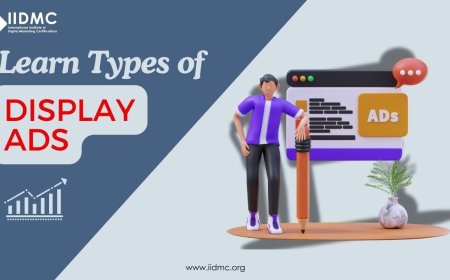The Role of Brand Reputation Management in Business Growth
Discover how brand reputation management builds trust, attracts more customers, and drives long-term business growth in today’s competitive market.

Brand Reputation Management plays an important part in how a business grows and succeeds. The way customers, partners, and the public see a brand directly affects trust, loyalty, and long-term success. When people have confidence in a brand, they are more likely to choose its products or services, recommend it to others, and stay loyal even when competitors try to capture their attention. A strong focus on Brand Reputation Management helps businesses avoid negative impressions and build positive relationships that support steady growth.
Business growth is not only about sales and marketing; it also depends on how a brand is perceived in the market. Brand Reputation Management allows companies to handle feedback, respond to crises, and create a positive image that attracts opportunities. Whether it is managing online reviews, engaging on social platforms, or maintaining transparency, the right strategy ensures that the brand stands out for the right reasons. With effective Brand Reputation Management, businesses can strengthen their market position and grow with confidence.
Understanding Brand Reputation Management
Brand Reputation Management is about taking control of the brand’s story and image. It does not mean manipulating opinions or hiding the truth; instead, it means building trust by being consistent, transparent, and responsive.
Key elements of Brand Reputation Management include:
-
Monitoring: Keeping track of online conversations, reviews, and mentions of the brand.
-
Responding: Answering customer queries, complaints, and feedback in a timely and respectful way.
-
Promoting Positives: Sharing success stories, achievements, and testimonials that highlight the brand’s strengths.
-
Correcting Negatives: Addressing issues, clarifying misinformation, and showing commitment to improvement.
-
Consistency: Ensuring that marketing promises match actual customer experiences.
For example, if a company advertises excellent customer support but fails to respond to complaints, customers will quickly point out the gap. Effective reputation management closes that gap and ensures reality matches expectations.
Why Brand Reputation Management is Crucial for Growth
Reputation is directly linked to business growth because it affects how customers make decisions. Customers want to feel confident in their choices, and they prefer to spend money with brands they trust.
How reputation drives growth:
-
Customer Trust: A strong reputation builds confidence and encourages new customers to try the brand.
-
Retention and Referrals: Loyal customers stick around and recommend the brand to others, reducing marketing costs.
-
Revenue Impact: Reputable brands can charge higher prices because customers believe they deliver more value.
-
Market Position: A positive reputation makes it easier to enter new markets and expand globally.
-
Crisis Survival: Companies with strong reputations bounce back faster from setbacks compared to those with weak reputations.
Key Benefits of Brand Reputation Management
A well-managed reputation brings benefits across different areas of business.

-
Customer Loyalty: Customers are more likely to stick with a brand they trust. Loyalty translates into repeat purchases and long-term relationships.
-
Competitive Advantage: In crowded markets where products are similar, reputation becomes the deciding factor. A good reputation can tilt customer preference in your favor.
-
Stronger Recruitment: Talented employees prefer to work for companies they admire. A strong employer reputation helps attract and retain skilled professionals.
-
Investor Confidence: Investors want to put money into businesses that are stable and well-regarded. A positive reputation reduces perceived risk.
-
Market Expansion: When entering a new region or market, a strong reputation helps open doors and build credibility quickly.
The Role of Digital Marketing in Brand Reputation Management
Digital marketing is one of the main ways businesses shape their reputation today. Since most customers search online before buying, what they see about a brand on websites, social media, or review sites has a big effect on trust. With the right approach, digital marketing helps create a positive image and protects the brand’s reputation.
-
Making the Brand Easy to Find: When people search online, they should see useful and positive information about the business. A strong website, good search rankings, and updated social media profiles make the brand look professional and trustworthy. Being visible online gives customers confidence.
-
Using Content to Build Trust: Articles, blogs, videos, and posts allow businesses to share knowledge and answer customer questions. When a brand provides helpful content, it shows expertise and builds trust. This makes customers more likely to choose the brand over others.
-
Talking with Customers on Social Media: Social media gives businesses a chance to talk directly with customers. Replying to questions, thanking people for support, and even handling complaints in a polite way shows that the brand listens. This kind of open communication helps improve reputation.
-
Managing Online Reviews: Reviews on Google or Yelp strongly influence customer decisions. Asking happy customers to share reviews and handling negative reviews calmly makes the brand look caring and responsible. Reviews act like digital word-of-mouth, and they directly affect reputation.
-
Handling Problems Quickly Online: If a mistake or crisis happens, digital marketing provides fast tools to respond. Brands can post updates on social media, send emails, or share press statements to explain the situation. Being quick and honest helps reduce damage and rebuild trust.
The Role of Online Reviews and Feedback
Today, customer reviews and feedback are some of the most powerful factors shaping brand reputation. People trust other customers more than they trust advertising.
The impact of reviews:
-
Positive Reviews: Build credibility and encourage potential buyers to act.
-
Negative Reviews: Can harm reputation, but if handled well, they show that the company cares about improvement.
-
High Volume of Reviews: A large number of reviews makes a brand appear established and reliable.
-
Engagement: Responding to reviews shows customers that their opinions matter.
Strategies for Effective Brand Reputation Management
Reputation is not built overnight; it requires effort and planning. Here are some strategies businesses can use:
-
Monitor What People Say About Your Brand: Keep track of online reviews, social media mentions, and news articles. This helps you know what customers are saying, both good and bad. By monitoring regularly, you can respond quickly before small issues grow into bigger problems.
-
Respond to Feedback Quickly and Politely: Customers expect businesses to listen. Whether feedback is positive or negative, a quick and polite response shows that you care. Thank people for good reviews and handle complaints with respect. This builds trust and shows responsibility.
-
Be Honest and Transparent: Mistakes happen in every business. What matters is how you handle them. If something goes wrong, admit it, explain what you are doing to fix it, and stay open with customers. Transparency builds credibility and long-term trust.
-
Encourage Positive Reviews and Stories: Happy customers often stay silent unless you ask for feedback. Encourage satisfied clients to leave reviews or share their experiences. Positive stories and testimonials strengthen your reputation and balance out any negative comments.
-
Train Employees to Represent the Brand Well: Your employees are often the face of your business. Train them to handle customers politely and represent your values. When staff members speak positively about your company, it improves your image inside and outside the organization.
-
Stay Consistent in Your Promises and Actions: A brand’s reputation grows when its actions match its promises. Make sure your marketing messages, service quality, and customer experience are consistent. If you promise “fast service,” make sure customers actually experience it. Consistency builds reliability.
The Future of Brand Reputation Management
Reputation management is becoming more complex as digital platforms evolve.
-
Artificial Intelligence: AI tools can analyze customer sentiment and predict reputation risks in real time.
-
Cancel Culture: Social media spreads news quickly, and even small mistakes can go viral. Brands must respond quickly.
-
Sustainability and Ethics: Consumers now judge brands not only on quality but also on environmental and social responsibility.
-
Personalization: Customers expect personalized responses and tailored experiences. Brands that ignore this risk losing relevance.
Common Mistakes to Avoid
Many businesses damage their reputation by making avoidable mistakes.
-
Ignoring Feedback: Not responding to customer complaints makes a brand appear uncaring.
-
Defensive Reactions: Arguing with customers publicly can worsen the situation.
-
Inconsistency: When marketing messages do not match actual experiences, customers lose trust.
-
Overpromising: Promising more than the company can deliver harms credibility.
-
Short-Term Thinking: Treating reputation as a one-time campaign instead of a long-term effort weakens results.
These mistakes can undo years of reputation-building in a matter of days.
How to Become a Certified Brand Reputation Management Specialist
Building and protecting a brand’s reputation is one of the most important skills in today’s digital world. Customers search online, read reviews, and follow social media before they decide to trust a brand. This is why businesses now look for specialists who can manage and improve their reputation. With training and a Digital Marketing certificate from IIDMC – the International Institute of Digital Marketing Certification, you can become a recognized Brand Reputation Management Specialist.
Step 1: Understand the Role
A Brand Reputation Management Specialist monitors how people see a brand, responds to feedback, handles crises, and builds trust online. This means working with online reviews, social media, press coverage, and customer interactions. The goal is to make sure the brand is always seen in a positive light.
Step 2: Join IIDMC’s Certification Program
IIDMC offers a professional certification program designed to give you both theory and practical knowledge. The program covers:
-
How to monitor and track brand mentions online.
-
Ways to manage online reviews and customer feedback.
-
Building trust through digital content and social media.
-
Handling crises and negative publicity.
-
Creating long-term reputation strategies for growth.
Step 3: Learn Through Practical Training
The IIDMC program is built with case studies, real-life projects, and examples. This hands-on training helps you apply what you learn in real business situations. You not only gain knowledge but also the confidence to manage the reputation for any brand.
Step 4: Pass the Certification Assessment
After completing the training, you will take an assessment to test your knowledge and skills. Once you pass, you receive the official Certified Brand Reputation Management Specialist credential from IIDMC, which is recognized internationally.
Step 5: Start Your Career or Grow Your Business
With IIDMC certification, you can:
-
Work as a Reputation Management Specialist for companies.
-
Offer consultancy services to businesses that want to protect their online image.
-
Add a strong skill to your digital marketing career and stand out in the job market.
Brand Reputation Management plays a key role in the growth of any business because it builds trust, attracts new customers, keeps existing ones loyal, and helps companies stand strong during challenges. A good reputation makes people choose a brand over competitors, creates long-term relationships, and even adds financial value to the business. In simple words, when a brand takes care of its reputation by being consistent, honest, and responsive, it not only protects itself from risks but also creates a strong foundation for steady and sustainable growth.





























